Drug and Alcohol Rehab in Orpington
Orpington is situated in the borough of Bromley, in Southeast London. Orpington and the rest of Bromley has the 7th lowest rate of opiates in the overall region, compared to the national average.
However, opiate use during younger ages (from 15 to 24) is much higher than the national average.
This coincides with the high rate of hospital admissions for substance misuse in young people. Further, this positively correlates with the levels of socio-economic deprivation in Orpington. [1]
Between 2016 and 2017: [1a]
- 1 in 3 adults between the ages of 16 and 59 used drugs at one point in their lives
- Over 35% of young adults from 15 – 24 used drugs at one point in their lives
- 6% of adults used prescription-only painkillers not prescribed to them
In the last year: [1b]
- 1 in 12 adults in England and Wales have used illicit drugs. This is around 2.8 million people
- 1 in 5 young adults (16–24) in England and Wales have taken a drug in the last year
- The most used drug was cannabis or forms of it
- 1 in 9 men from 16 – 59 years took drugs
- 1 in 18 women from 16 – 59 took drugs
- Ecstasy use in young adults has increased
- The emergence of multiple drug use (polysubstance abuse)
- Levels of all drug use are highest amongst the youngest age groups in England and Wales (16.5% of 16 – 19-year-olds and over 20% of 20 – 24-year-olds reported using drugs)
To learn more about the many addiction treatments in Orpington that may be able to help you, call us on 0800 140 4690
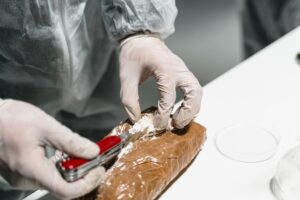
Nationally, men are said to be twice as likely to report using cannabis than women are. Men are also three times as likely to use cocaine and twice as likely to use ecstasy.
In 2016, there were over 3,700 drug-related deaths across England and Wales, which was a dramatic increase since 2012. Drug-related deaths are now the highest since records began in the 1990s: [1c]
- Heroin deaths have doubled from 2012 to 2015
- 1 in 6 deaths from drugs is classed as ‘drug poisoning’
- Increased suicide and poly-drug use
- Increase in deaths from psychoactive substances
- Heroin and morphine are the substances most involved in drug-related deaths
- Deaths from cocaine and benzodiazepines are rising nationally
Start your recovery journey at a rehab in Orpington today – call us on 0800 140 4690

From 2012 to 2016, the average age of deaths that were drug-related was 47 years of age. Of this, over 67% were classified as accidental, compared to 55% of the national deaths.
This is worrying since drug use is on a steep incline, and the number of people entering treatment is decreasing.
This may be due to the level of needs that remain unmet. The average of unmet drug abuse needs in Orpington is around 63%, much higher than the national average.
This ranks Orpington 2nd in the area; 63% of drug users do not know what treatment is available, nor are they known about the treatment services that are local.
Of those who are in the treatment services, almost 50% of them are over the age of 40.
The number of clients who have failed to engage with treatment following a referral (from prison or hospital) is above the national average – 71% compared to 67%. [1d]
- 2% of users were treated for amphetamines in Orpington
- 17% of users were treated for opiates other than cocaine
- 6% of users were treated for benzodiazepines
- 19% of users were treated for cocaine
- 22% of users were treated for cannabis
- 29% of users were treated for opiates and crack cocaine
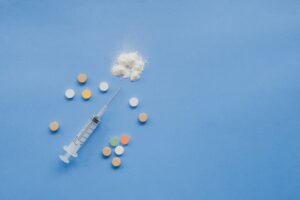
Non-opiate and alcohol users contributed to most of the clients in treatment with a previous conviction. Over half of people in drug treatment are new to treatment – 53% of men and 43% of women, respectively.
84% of these new treatments are self-reported and mainly of White British ethnicity. 15% of these patients report at least one disability.
Orpington has a high average of drug users presenting with a co-occurring mental health problem, also coined dual diagnosis.
The research found that, specifically for women, over half of them presenting for treatment have a co-occurring mental health disorder.
Two out of three people presenting for treatment have a co-occurring condition; psychiatric comorbidity is prevalent in drug and alcohol use populations. Anxiety and depression seem to be the most common across all drug classes. [1f]
Start your recovery journey at a rehab in Orpington today – call us on 0800 140 4690
Causes of Drug Use: Disease Model of Addiction
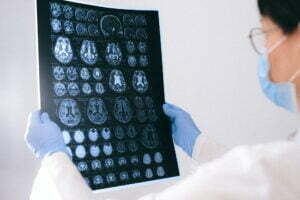
Through dramatic advances in neuroscience and medicine, it has been noted that we now further understand how drugs truly affect the brain.
The disease model of addiction leads us to recognise addiction as a brain disorder that can be treated just as diseases can.
This reinforces the view that addiction is not a failing of one’s morality and brings more attention to developing rehabilitation and treatment. [3]
Addiction is a brain disease characterised by the changes drugs have made to the brain’s functioning and structure. Brain abnormalities (or differences) affect how people react to drugs and lend to whether someone is more likely to take them.
Addictive behaviours are said to stem from:
- Biology
- Neurology
- Genetics
- Environment
You can read more about the disease of addiction here.
To learn more about this model helps us creat effective addiction treatment in Orpington, call our team today on 0800 140 4690
Different variations of the disease model:

- Exposure model: disease is acquired due to exposure; excessive and prolonged exposure causes’ brain injury’. This is based on the assumption that addiction results from brain damage due to exposure to drug or alcohol use.
- Susceptibility model: people are susceptible to diseases and addiction before they are ever exposed. People are born with a predisposition due to genetics. [5]
This aims to eradicate the stigma associated with addiction, removing the view that addiction is a constant choice via your free will or a character flaw. This is accompanied by the opinion that users and addicts lack the motivation to stop.
However, alcoholism was first classed as a ‘disease’ by the AMA (American Medical Association) in the 1950s.
They defined alcoholism as a ‘chronic brain disorder’, differentiating it from poor decision-making and behavioural issues.
This is not to say the initial use of drugs and alcohol holds no responsibility – this is likely to be voluntary.
Substance use can result from self-medicating mental conditions, stress, curiosity, peer pressure, and many other origins.
However, with continued use and exposure, the user’s ability to administer self-control over their drug and alcohol choices is impaired. This is where they might be called ‘dependant’ or ‘addicted’.
Viewing addiction in this way will aid rehabilitation and addiction therapy. Here we are discussing not moral failings but focusing more on brain structure and behavioural patterns.
This more positive outlook may be the deciding factor in whether you are able to get your loved one the help they so desperately need. [4]
Addiction is not considered a ‘choice’ or ‘moral failing’ on behalf of the addiction sufferer – rehab is about treating the disease of addiction.
Begin your recovery journey away from addiction with the help of a drug and alcohol rehab in Orpington. Call our team on 0800 140 4690
Dual Diagnosis: Mental Health Disorder
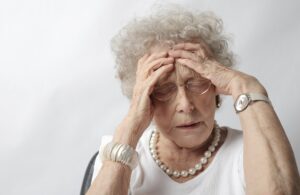
Comorbidity is where two disorders, such as substance abuse and bad mental health would, occur at the same time.
Those who develop substance abuse disorders, called SUDs, are highly likely to be diagnosed with or already have mental conditions.
Drug and alcohol users are trapped in a loop with mental illness; mental illness can cause SUDs, and SUDs can cause bad mental health. [6]
Anxiety and depression are the most prevalent mental conditions associated with addiction.
Over 60% of young adults who are in drug or alcohol treatment have also been diagnosed with a mental condition. [7]
For example, research has indicated that extensive marijuana use can lead to psychotic episodes, and alcohol has been proven to cause depression.
The reason adolescents and young adults are most at risk is due to brain maturity. During the transition from childhood to adulthood, the brain is still developing.
Impulse control and decision-making are the most immature for the longest period of time, making this age group susceptible to bad and irrational decisions. [8]
To find out how a rehab in Orpington will support your mental health needs during addiction treatment, call us on 0800 140 4690
Comorbidity can explain three variants of this hypothesis: [9]

- There are common risk factors that contribute to mental illness and addiction: genetic vulnerability and epigenetic vulnerability both contribute to mental illness and addiction. Around 50% of vulnerability to SUDs is said to come from genetics, with a mixture of environmental stress and trauma also contributing to both. [10]
- Mental illness causes or contributes to addiction: drugs and alcohol are both frequently used to self-medicate mental disorders, such as anxiety and depression. However, despite the aim being to eradicate the symptoms, drugs and alcohol only exacerbate them.
- Addiction causes or contributes to mental illness: using drugs and alcohol changes the brain structure and hinders functioning. The reason people use drugs and drink alcohol is for the euphoric effect first experienced, but this comes at a price – mental health.
Start your journey towards beating addiction – call us on 0800 140 4690 to get access to the best rehabs in Orpington
Substance Addiction and Dependency At Rehab in Orpington
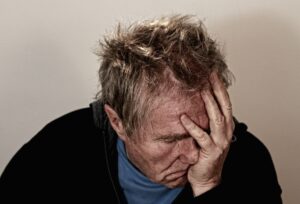
The DMS-IV-TR has a criterion, for defining substance dependency, and substance addiction: [11]
Substance dependency is described as a ‘maladaptive pattern of substance use, leading to clinically significant impairment or distress. This manifests itself in the following way (in a 12-month period):
- An increased tolerance: have you noticed the user needing a markedly increased amount of substance to achieve its desired effect? If your loved one seems to be using or taking more of a drug, they are likely to be dependent on it.
- Withdrawals: does your loved one suffer from withdrawal symptoms (such as anxiety or shakes) or use it again to relieve these symptoms?
Diagnosing addcition is just the first step to recovery. Attend a rehab in Orpington by calling us today on 0800 140 4690
Substance Abuse vs Substance Use

If the individual you are concerned about uses more than usual for a longer period, they may have a substance dependency, in which case you ought to think about intervention.
Another obvious sign is if they are persistent in their substance use, accompanied by unsuccessful efforts to cut down or control their substance use.
This usually means they don’t spend a lot of time engaged in their usual activities.
‘Substance Abuse’ is slightly different. This is usually characterised by recurrent substance use, resulting in a failure to fulfil major obligations, such as work. This is linked to repeatedly poor performances and poor attention.
It is crucial to know the difference between substance abuse and substance dependency when looking at rehabilitation.
Each rehab centre in Orpington is tailored towards specific types of addiction, so it may be useful to understand the roots and causes of the user’s addiction in order to get them the best help available.
Before you embark on finding a type of rehabilitation in Orpington, you may be interested in at-home questionnaires. These help you identify any negative patterns that you have noticed.
Learn more about how a rehab in Orpington can help you or your loved one by calling us today on 0800 140 4690
CAGE Questionnaire

The CAGE questionnaire falls into this bracket; CAGE has been used for decades in order to identify drug and alcohol habits for yourself or a loved one.
These are quick and easy to do and vital with regards to self-acceptance and acknowledgement of addiction.
CAGE Questions for Alcohol Use:
- Have you ever felt you should CUT down your drinking? YES/NO
- Have people ever ANNOYED you by critiquing your drinking? YES/NO
- Have you ever felt bad or GUILTY about your drinking? YES/NO
- Have you ever had a drink first thing in the morning to steady nerves or in order to get rid of a hangover? YES/NO
CAGE Questions Adapted to Include Drug Use (CAGE-AID)
- Have you ever felt you ought to cut down on your drinking or drug use?
- Have people annoyed you by criticising your drinking or drug use?
- Have you felt bad or guilty about your drinking or drug use?
- Have you ever had a drink or used drugs first thing in the morning to steady your nerves or to get rid of a hangover (eye-opener)?
If you answer with a yes, that will give you a score of 1. If you answer with a no, you receive a score of 0. If you score over 2 points, it is said to be clinically significant, indicating serious drinking and drug-using habits.
If seeing this questionnaire has made you curious about attending drug and alcohol rehab in Orpington, call us on 0800 140 4690
The AUDIT Questionnaire

The AUDIT questionnaire (alcohol use disorders identification test) is an alcohol screening test. Once you have finished the first four questions, if you score as ‘fast positive’, you are required to complete the remaining six questions.
- How often have you had six or more units if you are female or eight or more if you are male on a single occasion in the last year?
- How often during the last year have you failed to do what was normally expected from you because of your drinking?
- How often during the last year have you been unable to remember what happened the night before because you had been drinking?
- Has a relative or friend, doctor or other health worker been concerned about your drinking or suggested that you cut down?
Are you fast+? If so, answer these questions:
- How often do you have a drink containing alcohol?
- How many units of alcohol do you drink on a typical day when you are drinking?
- How often during the last year have you found that you were not able to stop drinking once you had started?
- How often during the last year have you needed an alcoholic drink in the morning to get going after a heavy drinking session?
- How often during the last year have you had a feeling of guilt or remorse after drinking?
- Have you or somebody else been injured as a result of your drinking?
Once you have completed these questionnaires, you will have more of an idea as to whether you have or may have an alcohol or drug use problem. It is then important that you receive help and know what rehabilitation is on offer to you in Orpington.
To learn more about how you can access alchol addiction treatment in Orpington, call our team on 0800 140 4690
Intervention: CRAFT Approach

Intervention is the first approach to rehabilitation in Orpington. The definition of intervention regards changing the course of something on purpose and therefore changing the end goal.
For drugs and alcohol, intervention means trying to get the user into rehabilitation or addiction treatment in Orpingtonin order to stop them from developing a full or worsening addiction.
Community Reinforcement And Family Training, also known as ‘CRAFT’, is one way to do this.
CRAFT is an approach designed for concerned others, mainly families; this involves learning to communicate with the loved one who is struggling, but this is not in an old style of confrontation.
By focusing on mental health, CRAFT has been proven to be over 70% effective at getting the user the help they need.
This is done using positive reinforcement; concerned others positively reward pro-social and anti-using behaviour in an attempt at rewiring the user’s damaged brain reward system.
Old methods of conversation or isolation are being diverged from, as it is never a choice they or you should have to make. CRAFT then teaches you a series of important strategies to help you and your loved ones:
- Understand how everyone communicates and make it more effective.
- Use positive reinforcement whilst allowing the negative consequences of using to impact them.
- Make yourself more aware of the impacts, origins and treatments of SUDs.
- Change your interactions, and learn skills that motivate people.
- Realise that re-development and change are possible.
- Build long-term, sustainable and realistic goals for everyone involved.
For guidance on how to conduct an intervention in order to encourage a loved one to enter addiction treatment in Orpington, call our team today on 0800 140 4690
Rehabilitation in Orpington

There are two main types of rehabilitation available to you in Orpington, inpatient and outpatient. The difference lies in whether you live in the treatment centre or attend it whilst still living at home.
Inpatient treatment appears to hold heavy stigma as a result of celebrity media and advertising of the deluxe treatments.
Inpatient centres in Orpington can be affordable, but they are not commonly referred by the NHS and you will often be asked to pay upfront.
However, you can create a payment plan with the treatment centre.
This cost covers everything from rent, medication, staff training and therapies. The cost of inpatient treatment can range from £14,000 per week to over £70,000 a week, depending on your needs and the severity of your addiction.
To learn more about your options for drug and alcohol rehab in Orpington, call us on 0800 140 4690
How long is the usual stay at rehab in Orpington?

The standard time spent in a rehab clinic in Orpington is usually 28 days, with seven days being the minimum for detox.
Outpatient treatment centres in Orpington have less of a strict routine. However, you still attend therapy and will remain supervised at the clinic if you are taking medication to aid withdrawal symptoms (referred to as pharmacological intervention).
For a more accurate estimation of how long exactly your time at addiction treatment in Orpington will take, call us on 0800 140 4690
What are the benefits of a medically supervised detox?
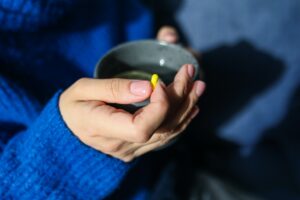
You will usually have to pay for your prescription, which remains around £9 each on average. Outpatient centres are usually the type of treatment referred via the NHS.
These medications are usually likely to be Librium-based, carried out for a period of 10 days because it is also an addictive substance.
Librium helps rebalance the brain chemistry that has been damaged by abusing drugs and alcohol. Librium targets the mental side effects of detox, such as anxiety and depression.
This will be required for physically addictive substances, such as heroin and alcohol, rather than non-physically addictive drugs , such as marijuana and cocaine.
To begin your addcition treatment in Orpington with a detox at your ideal rehab center, call us on 0800 140 4690
Other reasons to stay at a rehab centre in Orpington:
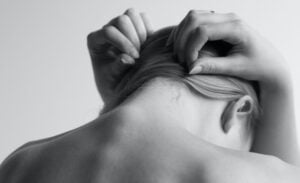
It is also suggested that you check into residential rehab in Orpington (inpatient treatment) if you:
- Struggle with self-harm or are violent under the influence
- Suffer from serious withdrawals such as seizures
Take back control of your life with the help of a rehab in Orpington. Call our team on 0800 140 4690
How to choose the right addiction treatment in Orpington?

Choosing the right treatment in Orpington can be difficult. The ASAM created a specific criterion to aid the treatment plans of addicts, depending on their scores relating to six dimensions.
There are six dimensions; all scored from one to four on a risk level; a high risk indicates that the treatment plan should tailor itself more to that specific area: [12]
- Dimension 1 – Acute intoxication and/or withdrawal: is the patient vulnerable to severe withdrawal symptoms?
- Dimension 2 – Biomedical conditions and complications: does the patient have underlying health conditions that could affect treatment?
- Dimension 3 – Emotional, behavioural, or cognitive conditions and complications: is the emotional state of the patient regulated?
- Dimension 4 – Readiness to change: does the patient hold the motivation to change?
- Dimension 5 – Relapse, continued use, or continued problem potential: does the patient seem vulnerable to relapse?
- Dimension 6 – Recovery/living environment: is the patient very social to the extent it may interfere with treatment?
A clinician can then tailor your treatment plan with this in mind. If you or your loved one are honest with your answers, this will mean that you will get the correct treatment, and you are less likely to relapse after rehabilitation in Orpington.
Once you have succeeded with the rehabilitation in Orpington, therapy is used to prevent relapse so you can continue and maintain your journey to complete sobriety.
Let us help you find the right drug and alcohl rehab in Orpington by calling us on 0800 140 4690
Therapies on offer at rehab in Orpington

Professionally supported drug and alcohol rehab in Orpington is one of the best ways to recover from addiction, largely due to the treatments that are offered.
Many traditional therapies are available through drug and alcohol rehab in Orpington.
CBT (cognitive behavioural therapy) is commonly used for addiction treatment, for drugs, alcohol and co-occurring mental disorders
Classified originally as mental health counselling in the 1960s, CBT helps people address negative and damaging thoughts in order to change their behaviour
For people with SUDs, this helps them find the connections between thoughts, feelings, actions, and awareness. In doing so, CBT highlights how harmful behaviours and thoughts are irrational and where they may come from, such as trauma
When an addict understands their emotions and why they are in the position they are in, they are better equipped to overcome their addiction and remain sober
Identifying the negative automatic thoughts and impulses is critical, specifically relating to revising old trauma and memories. This is where the patient re-configures the place or people to try and prevent their self-medication.
Anyone undergoing addiction treatment in Orpington is likely to come across CBT at some point.
DBT (dialectical behavioural therapy) is a form of CBT. DBT is a talking therapy specifically designed for people who find their feeling and emotions to be overwhelming.
Accepting yourself as you are whilst changing your behaviour might seem odd and contradictory, but DBT teaches you that this is possible
DBT targets mostly self-harm, suicide, and depression but was originally designed for borderline personality disorder. It is now also targeting drugs, alcohol, eating, and criminal activity.
DBT will work for you if you are committed to making positive changes and if you are ready to focus on the present rather than the past (CBT).
DBT is a fairly common form of treatment, so it will be offered by most rehabs in Orpington.
To access these traditional therapies through the best rehab in Orpington, call us on 0800 140 4690.
Holistic Therapies

If you are looking for less intensive therapy, holistic therapy focuses on the whole body as one. This doesn’t look at individual symptoms but treats the mind and body as the same unit
‘Holistic’ originates from the Greek word for ‘whole’; human beings are not just physical bodies, but our minds and spirit interact with the physical realm.
This is not a ‘one size fits all’ approach, as each individual has a different set of needs and will respond to treatment in a different way.
This coincides with the disease model of addiction – addiction damages the mind and the body, so both require sufficient attention. There is an array of holistic treatments for addiction:
- Acupuncture
- Tai chi
- Meditation
- Mindfulness
- Art therapy
- Animal-assisted therapy
- Nutritional education
This can be offered by the NHS along with local charities. However, the most intense holistic treatment programs are provided by private clinics.
Although moat rehabs in Orpington will offer some kind of holistic therapy, the specific kind will depend don’t heir resources, location and expertise.
These are just a few of the therapies on offer in Orpington. If you are interested in Rehabilitation or therapy, don’t hesitate to contact us.
Find the right rehab in Orpington to facilitate your recovery – call us on 0800 140 4690
Relapse Prevention and Aftercare After Rehab In Orpington

Experts have agreed that abstinence is always the safer and more effective route to addiction recovery.
Group therapies in Orpington like Alcoholics Anonymous operate as a form of aftercare, preventing users from relapsing.
Group therapies offer an anonymous and mutual support mechanism where you can be honest without the fear of judgment.
For AA, previous alcoholics sit together and discuss and exchange experiences, stories, and struggles. This is done whilst abiding by their 12-step program, designed by the founders of AA:
- We admitted we were powerless over alcohol – that our lives had become unmanageable.
- Came to believe that a Power greater than ourselves could restore us to sanity.
- Made a decision to turn our will and our lives over to the care of God as we understood Him.
- Made a searching and fearless moral inventory of ourselves.
- Admitted to God, to ourselves and to another human being the exact nature of our wrongs.
- Were entirely ready to have God remove all these defects of character.
- Humbly asked Him to remove our shortcomings.
- Made a list of all persons we had harmed and became willing to make amends to them all.
- Made direct amends to such people wherever possible, except when to do so would injure them or others.
- Continued to take personal inventory and, when we were wrong, promptly admitted it.
- Sought through prayer and meditation to improve our conscious contact with God as we understood Him, praying only for knowledge of His will for us and the power to carry that out.
- Having had a spiritual awakening as the result of these steps, we tried to carry this message to alcoholics and practice these principles in all our affairs.
These steps are unlikely to always be followed by newcomers to the group. It takes time and practice to get things right.
Keep an open mind when attending support groups – these are designed to show you that you are not alone, and there is support at every corner you look to.
Begin your recovery journey at a drrug and alcohol rehab in Orpington by calling us on 0800 140 4690.
Triggers
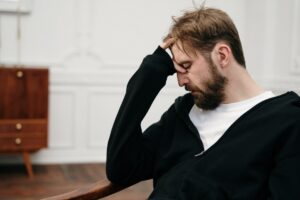
When you are looking to avoid relapse after addiction treatment in Orpington, it is important you understand the common triggers.
These include:
- Boredom
- Stress
- Money problems
- Relationship issues
- Certain people and places
- Anger and negative emotions
The following are some classic relapse prevention skills:
- Self-care, including exercise and nutrition
- Mindfulness and meditation
- Know and understand triggers
- Support groups (such as AA)
- Deep breaths and grounding techniques
- Talk to friends and family
To begin your recovery journey at rehab as soon as possible, call us today on 0800 140 4690
References
[1] [1a] [1b] [1c] [1d] file:///Users/harrietleslie/Downloads/JSNA_2017_Drug_Misuse_in_Adults__FINAL_18_05_18.pdf – NHS Bromley Joint Strategic Needs Assessment 2017. ‘Drug Misuse in Adults’.
[2] Public Health England. (2017). Opiate and crack cocaine use: prevalence estimates for local populations. [online] Available at: https://allcatsrgrey.org.uk/wp/download/public_health/substance_misuse/Estimates-of-the-Prevalence-of-Opiate-Use-and-or-Crack-Cocaine-Use-2016-17-Sweep-13-report.pdf
[4] Heilig, M., MacKillop, J., Martinez, D., Rehm, J., Leggio, L., & Vanderschuren, L. J. M. J. (2021). Addiction is a brain disease revised: Why it still matters, and the need for consilience. Neuropsychopharmacology, 1–9. doi.org/10.1038/s41386-020-00950-y Accessible here: https://www.nature.com/articles/s41386-020-00950-y
[6] Ross S, Peselow E. Co-occurring psychotic and addictive disorders: neurobiology and diagnosis. Clin Neuropharmacol. 2012;35(5):235–243. doi:10.1097/WNF.0b013e318261e193.
[11] Center for Substance Abuse Treatment. Managing Chronic Pain in Adults With or in Recovery From Substance Use Disorders. Rockville (MD): Substance Abuse and Mental Health Services Administration (US); 2012. (Treatment Improvement Protocol (TIP) Series, No. 54.) Exhibit 2-6, DSM-IV-TR Criteria for Substance Abuse and Substance Dependence. Available from: https://www.ncbi.nlm.nih.gov/books/NBK92053/table/ch2.t5/
[12] American Society of Addiction Medicine (2021) ASAM: Quality and Science. Available @ASAM Home Page.
[13] https://dualdiagnosis.org/interventions/top-4-types-of-interventions/


